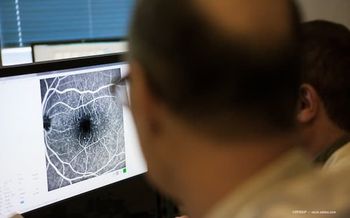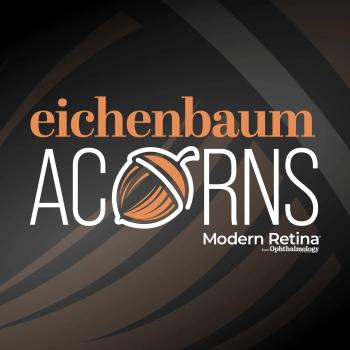
ASRS 2023: Aflibercept 8 mg two-year results from PHOTON trial in DME highlighted
In a presentation at the ASRS 41st Annual Meeting in Seattle, Diana Do, MD, said the PHOTON study demonstrated the potential aflibercept 8 mg could have in reducing the treatment burden for patients.
Regeneron Pharmaceuticals, nc. announced the first presentation of positive two-year (96 weeks) results from the pivotal PHOTON trial investigating aflibercept 8 mg with 12- and 16-week dosing regimens, compared to aflibercept (EYLEA) Injection, in patients with diabetic macular edema (DME).
The results were presented at the American Society of Retina Specialists (ASRS) annual meeting being held in Seattle.
“At two years, the PHOTON trial demonstrates the substantial impact aflibercept 8 mg could have in reducing treatment burden for patients with diabetic macular edema,” Diana V. Do, MD, professor of Ophthalmology and vice chair for Clinical Affairs at the Byers Eye Institute, Stanford University and a trial investigator, said in a statement.
PHOTON (N = 658) is a double-masked, active-controlled pivotal trial evaluating non-inferiority of aflibercept 8 mg extended dosing intervals compared to EYLEA. Patients receiving aflibercept 8 mg were initially randomized to either 12- (n=328) or 16-week (n=163) dosing intervals (after three initial monthly doses) compared to an 8-week dosing regimen for EYLEA (n=167) after five initial monthly doses. During the trial, patients receiving aflibercept 8 mg could have their dosing intervals shortened down to an every 8-week interval if protocol-defined criteria for disease progression were observed. Patients were only able to extend their dosing intervals in the second year by 4-week increments up to 24-weeks, if pre-specified criteria were met.
“Maintaining two years of vision and anatomic improvements with as few as three or four injections per year, while not compromising safety, is impressive and could make a meaningful difference in the lives of the patients we treat,” Do said.
The company noted in a news release PHOTON trial met its primary endpoint last year with aflibercept 8 mg patients achieving clinically equivalent vision gains to EYLEA, with approximately 90% maintaining 12- and 16-week dosing regimens through the first year. Through two years, the mean number of injections administered were 9.5 for the 12-week aflibercept 8 mg group, 7.8 for the 16-week aflibercept 8 mg group, and 13.8 for the EYLEA group, with the vast majority of aflibercept 8 mg patients maintaining extended dosing intervals as first
- 89% of patients maintained ≥12-week dosing intervals, compared to 93% through one year
- 84% maintained ≥16-week dosing intervals, compared to 89% maintaining a 16-week dosing interval through one year, among those randomized at baseline to a 16-week dosing interval
- 44% met the criteria for ≥20-week dosing intervals at week 96, including 17% and 27% who were eligible for 20- and 24-week dosing intervals, respectively
The company noted the safety of aflibercept 8 mg continued to be similar to EYLEA through two years and remained consistent with the known safety profile of EYLEA from previous clinical trials for DME. Ocular treatment emergent adverse events (TEAE) occurring in 5% of patients in any treatment group, in decreasing frequency, were cataract, vitreous floaters and conjunctival hemorrhage. There were no cases of retinal vasculitis, occlusive retinitis or endophthalmitis.
The rate of intraocular inflammation was 1.2% for both the EYLEA and aflibercept 8 mg groups. Anti-platelet trialists' collaboration-defined arterial thromboembolic TEAEs occurred in 7.2% of patients treated with EYLEA and 6.7% of patients treated with aflibercept 8 mg.
According to a news release from Regneron, PULSAR in wAMD and PHOTON in DME are double-masked, active-controlled pivotal trials that are being conducted in multiple centers globally. In both trials, patients were randomized into 3 treatment groups to receive either: aflibercept 8 mg every 12 weeks, aflibercept 8 mg every 16 weeks, or EYLEA every 8 weeks. The lead sponsors of the trials were Bayer for PULSAR and Regeneron for PHOTON.
According to the company, monthly doses, and patients treated with EYLEA received 3 initial doses in PULSAR and 5 in PHOTON. During the trial, patients in the aflibercept 8 mg groups could have their dosing intervals shortened down to an every 8-week interval if protocol-defined criteria for disease progression were observed. Intervals could not be extended until the second year of the study. Patients in all EYLEA groups maintained a fixed 8-week dosing regimen throughout their participation in the trials.
Newsletter
Keep your retina practice on the forefront—subscribe for expert analysis and emerging trends in retinal disease management.




























